
*
Stage plays about life on the stage are nearly as old as the theatre, from sections of Shakespeare's Hamlet and A Midsummer Night's Dream to, more recently, works like Lend Me a Tenor and Curtains. Similarly, Hollywood started making movies about making movies in the Silent Era, beginning with flicks like "Show People" and "The Cameraman" and continuing with "Sunset Boulevard," "The Player" and "Synecdoche, New York," among many others.
A hybrid genre of these two art forms — and hardly less robust — is the theatre film. From film's earliest days, directors and screenwriters drew on the intrinsically dramatic world of the theatre for story plots. Autocratic producers, egomaniacal directors, idealistic playwrights, vain actors, dreamy-eyed ingenues — all these and many more quickly became familiar stock figures in Hollywood's many backstage dramas of the 1920s and 1930s. As the theatre's central role in American culture declined, the number of theatre films dwindled, but filmdom's fascination with the stage has never completely vanished, with a "Topsy Turvy" or a "Bullets Over Broadway" appearing every few years.
In celebration of the silver screen's rich tradition of capturing on celluloid the life before and beyond the footlights, Playbill.com has selected what it considers to be the five greatest theatre films of all time. Each is not only a peerless depiction of The Life Theatrical, but an excellent example of the filmmaking art. (We did not pick movies that were simply film versions of established plays and musicals, as they were not strictly films made about the theatre, but simply films of plays about the theatre. Thus, no "Stage Door" or "Kiss Me, Kate." Also — no documentaries.) In support of our choices, we've solicited commentary from a handful of seasoned professionals and critics from both theatre and film. Here are our choices.
| |
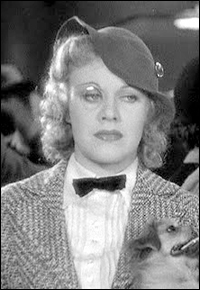 |
|
| Ginger Rogers in "42nd Street." | ||
| © 1933 - Warner Bros. |
"There's nothing like a vintage Warner Bros. production, and this is one of them," said Robert Cashill, an associate editor of Cineaste magazine, a Drama Desk nominator, and a longtime chronicler of both theatre and film. "Rawboned, sharp and funny, and gleefully minting cliches that would never be served up as succulently…. The film fuses theatre and movie love into a giddy, breathless hybrid." "If you forget the airbrushed and candy-coated stage adaptation and watch the flick with fresh eyes," said David Cote, Time Out New York's longtime drama critic, "you may be surprised by its shrewd mix of sweet and sour. Busby Berkeley's vertiginous girlie-prisms are balanced by a sense of genuine desperation to get the show up and make some money. Don't forget: This is a Depression-era tale of making a quick buck. And I love how in every scene, it looks like Warner Baxter's Julian Marsh looks like he's about to stroke out in the rehearsal room." Broadway playwright-librettist Douglas Carter Beane added, "All the lines they say about the chorus girls, today we say about the chorus boys."
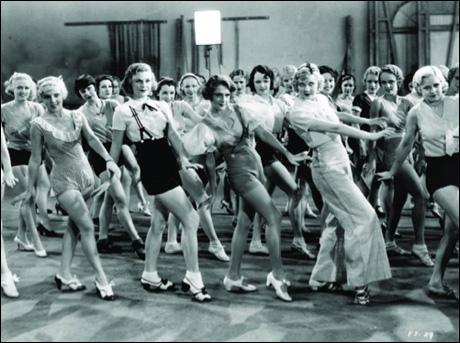 |
| Ruby Keeler and cast in "42nd Street." |
| © 1933 - Warner Bros. |
| |
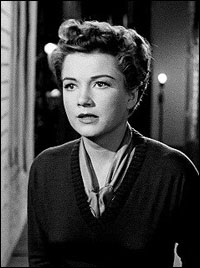 |
|
| Anne Baxter in "All About Eve." | ||
| © 1950 Twentieth Century Fox |
"'All About Eve' is the ultimate theatre story because is resonates far beyond the theatre," said Tony-winning Broadway producer Robyn Goodman, who loves the movie so much she named her business, Aged in Wood, after the play Margo Channing headlines in the film. "Every business has an Eve Harrington story and every critic has a bit of Addison DeWitt in them." Tony-winning director Michael Mayer concurred that "All About Eve" is "the best depiction of the world of the theatre — the players and the people who love them — God help 'em. The writing is ridiculously good (and quotable) and the story is completely absorbing no matter how many dozens of times you've seen it." Cote called it "A movie dear to every critic's heart, if only for making us look like epigram-spouting tastemakers with gorgeous starlets draped on either arm." The film won six Academy Awards, including Best Picture, Best Screenplay and Director (both to Mankiewicz), and black and white Costume Design (Edith Head). Sanders won the Oscar for Best Supporting Actor.
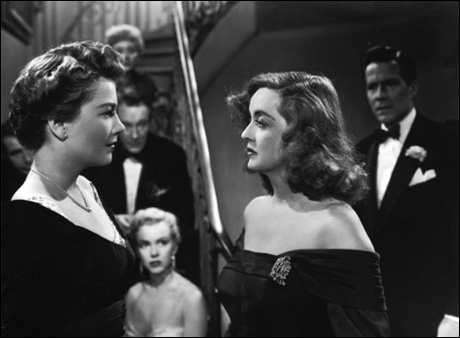 |
| Anne Baxter and Bette Davis in "All About Eve." |
| © 1950 Twentieth Century Fox |
| |
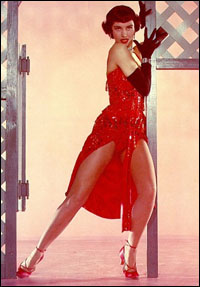 |
|
| Cyd Charisse | ||
"Writing 'That's Entertainment!' into the Great American Songbook would be enough to ensure this musical about musicals into the pantheon," said Cashill. "But there's so much else going on. With Nanette Fabray and Oscar Levant 'doing' the writers, the incomparable Comden and Green, we get a musical comedy view of how a show changes on the road, with all the ups and downs along the way. It's as well-observed, and amusing, as the silent-into-sound-era shenanigans of their 'Singin' in the Rain' [screenplay]." Tony-winning composer-lyricist Marc Shaiman called it his "favorite M-G-M musical." Wittman said of it, "After watching Nanette Fabray and Oscar Levant...I said, 'That's what I want to do. Be a married composing team!,'" while Beane quipped, "A washed-up film star tries his hand at Broadway to get his career restarted? Completely unrealistic." (Beane happened to pen the libretto of a stage version of the movie, retitled Dancing in the Dark. It stalled following a 2008 world premiere at The Old Globe in San Diego.)
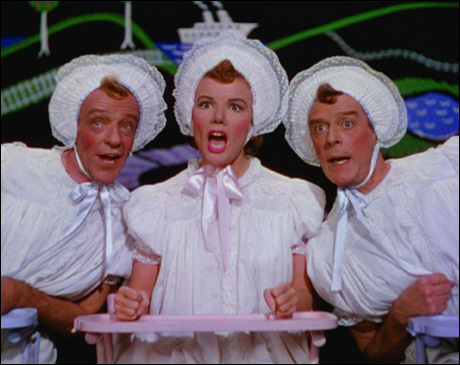 |
| Fred Astaire, Nanette Fabray and Jack Buchanan in "The Band Wagon." |
| © 1953 - Warner Bros. |
| |
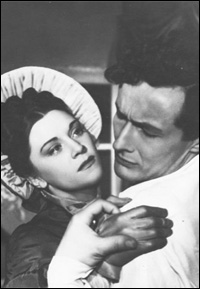 |
|
| María Casares and Jean-Louis Barrault in "Children of Paradise." |
"I saw this movie in college and remember being quite moved by its mix of innocence and cynicism," said Cote. "It's also nice to see a movie included [in this list] that isn't about glamorizing the American musical." Opined Cashill, "Centered around theatre, the movie, set in a bawdy, freewheeling 19th-century Paris, is full of characters who pretend, and seeing vanities and passions and the stuff of existence back on the screen once the war years ended was a tonic for weary French viewers. Today we enjoy the indelible performances and the heady atmosphere, and marvel at a movie that gets us to contemplate mime, an art our culture threw under the bus long ago." Jean-Louis Barrault plays the mime, one of four men in love with Arletty's character. An upgraded DVD edition and Blu-ray edition of "Children of Paradise" will be released by Criterion on Sept. 18.
| |
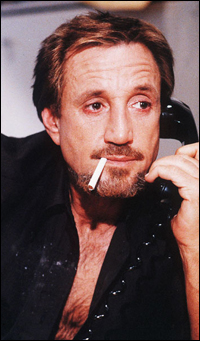 |
|
| Roy Scheider in "All That Jazz." | ||
| © 1979 20th Century Fox. |
"Fosse was a genius," said Goodman, "and his ferocious self-destruction is riveting. The use of the camera to express dance is also astonishing." Mayer said that the movie "is the best rendering of the creative process as it relates to the (relatively) contemporary theatre. It's the movie that mercilessly explores where true creativity meets self-destruction; psychology meets imagination; and the terrifying place where art meets commerce…. Brilliant filmmaking. And then there are the theatrical elements which betray the reach of his ambitions. But, man, is he reaching! And that's ultimately the most moving thing about the film." A few commenters agreed with Beane — "Fosse does Fellini" — that the film showed the clear influence of Federico Fellini's "8 1/2," while Cashill pointed out the movie's influence on other flicks, like the recent "Synecdoche, New York." "A portrait of the artist hooked on an art that is killing him day by day," summarized Cashill. But, then, that could arguably be said of every film on this list. The theatre, she is a cruel mistress. The film was nominated for a Best Picture Oscar. (The DVD of "All That Jazz" is among films available at PlaybillStore.com.)
RUNNERS-UP: Everyone interviewed for this article (and certainly everyone reading it) has a favorite movie or two they wish had made the cut. Cashill mentioned the cult classic "Theatre of Blood," from 1973, in which "Vincent Price's egocentric Shakespearean actor, thought dead after losing London's top theatrical prize, returns to avenge himself on the critics in the manner of the Bard." Cote wished that "Topsy Turvy," Mike Leigh's bio-pic of Gilbert and Sullivan, and Christopher Guest's satire of small-town theatricals, "Waiting for Guffman," had been included. I, myself, was torn over omitting Woody Allen's "Bullets Over Broadway" (which is being developed into a Broadway musical). Ah, well. That's showbiz, folks.
What's your favorite movie about the theatre (one not based on stage property)? Let us know on our facebook page.
Visit PlaybillStore.com to check out theatre-related DVDs for sale.











